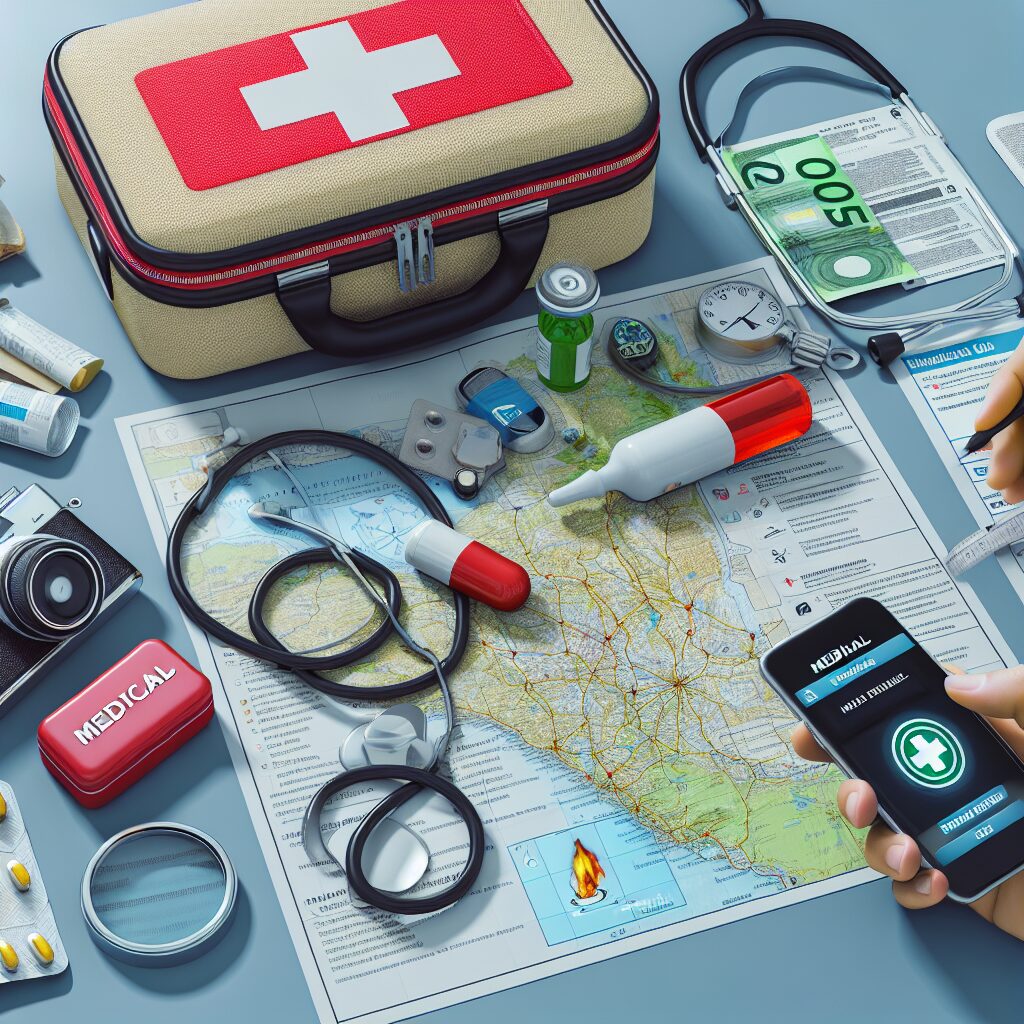Cruising Solo: Tips for Solo Travelers
Traveling alone can be an exhilarating and transformative experience. It allows for self-discovery, personal growth, and the freedom to explore at your own pace. One of the most popular ways to embark on a solo adventure is by going on a cruise. Cruising solo offers a unique opportunity to navigate the open waters while enjoying the comforts of luxurious accommodations, delectable cuisine, and endless onboard activities.
When it comes to cruising solo, there are some essential tips that can elevate your experience to new heights. From selecting the right cruise line to embracing social interactions onboard, these key takeaways will ensure a memorable and fulfilling journey. In the following sections, we will delve into these tips, providing insights on how to make the most out of your solo cruising experience. So, whether you are a seasoned solo traveler or considering embarking on your first solo adventure, read on to discover valuable advice that will enhance every aspect of your cruise.
Key Takeaways
1. Research the cruise line and ship amenities to ensure a solo-friendly experience. Before booking a solo cruise, it is important to research and choose a cruise line that offers amenities and activities geared towards solo travelers. Look for ships that have single cabins or lower single supplements, as well as dedicated solo traveler social areas and events.
2. Participate in solo traveler meetups and activities to connect with like-minded individuals. Many cruises include meetups and social activities specifically for solo travelers. Take advantage of these opportunities to meet new people and form connections with fellow solo travelers.
3. Be open to sharing dining tables or opting for flexible dining options. Dining options on cruises often include assigned seating at shared tables. Embrace the chance to meet new people by opting for shared tables or choosing flexible dining options. This can lead to memorable conversations and new friendships.
4. Take advantage of excursions and shore activities to explore destinations independently. Use shore excursions as an opportunity to explore ports of call on your own terms. Consider activities like walking tours, bike rentals, or self-guided exploration to fully experience the destinations you visit.
5. Prioritize personal safety by being cautious and aware of your surroundings. While solo cruising can be a safe and enjoyable experience, it is important to prioritize personal safety. Stay aware of your surroundings, avoid excessive alcohol consumption, and take precautions such as locking your cabin door and not sharing personal information with strangers.
What are the Essential Tips for Cruising Solo as a Solo Traveler?
Selecting the Right Cruise
Embarking on a solo cruising adventure requires careful consideration when choosing the cruise line and ship. Opt for cruise lines that offer amenities catered towards solo travelers, such as single cabins or social events for solo cruisers. Research the available options and select the cruise that aligns with your preferences and travel goals.
Packing Wisely for Solo Travel
Packing efficiently is crucial for solo travelers. Make a checklist of essentials, including clothing suitable for various weather conditions, comfortable shoes for exploring ports of call, travel adapters, and necessary medications. It’s also prudent to pack a small first aid kit and a copy of important documents like passports and travel insurance.
Understanding the Ship’s Facilities and Services
Familiarize yourself with the ship’s layout and the services it offers. Study the onboard dining options, entertainment venues, fitness facilities, and spa services. By knowing what is available, you can plan your cruise experience accordingly and make the most of the amenities provided on the ship.
Joining Solo Traveler Meetups
Participating in solo traveler meetups organized by the cruise line can be a fantastic way to connect with fellow solo cruisers. These events might include meet-and-greets, mixers, or group activities. Engaging with others who are also traveling alone can enhance your cruise experience and potentially forge new friendships.
Taking Safety Precautions
Safety should always be a top priority, especially when traveling alone. Before setting sail, familiarize yourself with the ship’s safety procedures and emergency exits. Additionally, inform the ship staff about any specific safety concerns you may have. Always be cautious and aware of your surroundings, particularly when exploring unfamiliar ports of call.
Excursions and Port Explorations
Research and plan ahead for exciting shore excursions and port explorations. Solo travelers may have different preferences, so choose activities that match your interests, whether it’s adventurous water sports, cultural tours, or simply relaxing on a pristine beach. Participating in organized tours or hiring local guides can provide a safe and enriching experience.
Building Connections with the Crew
Engaging with the ship’s crew members can enhance your solo cruising experience. They are knowledgeable about the ship’s services and can offer valuable insights or recommendations. Building a friendly rapport with the crew may result in personalized service and a more enjoyable journey aboard the cruise ship.
1. What steps should I take to ensure a safe solo cruising experience?
2. How can I make the most of my solo traveling adventure onboard the cruise ship?
3. What are some important factors to consider when selecting a cruise as a solo traveler?
4. What should I pack in order to be fully prepared for a solo cruising trip?
5. How can I connect with other solo travelers during my cruise journey?
FAQ: Cruising Solo: Tips for Solo Travelers
1. What are the advantages of solo cruising?
There are numerous advantages to solo cruising. Firstly, you have the freedom to plan your itinerary according to your preferences. With no set schedule, you can explore destinations at your own pace. Secondly, solo cruising offers a chance for personal growth and self-discovery. It allows you to step out of your comfort zone and meet new people from around the world.
2. Is solo cruising safe?
Yes, solo cruising can be safe if certain precautions are taken. Cruise lines prioritize passenger safety and have comprehensive security measures in place. It’s important to be vigilant and follow common safety practices such as locking your cabin door and not venturing alone in unfamiliar or unsafe areas.
3. How can I meet fellow solo travelers on a cruise?
Cruise lines often organize social events and activities specifically for solo travelers, providing opportunities to meet fellow like-minded individuals. Additionally, joining online forums or social media groups dedicated to solo cruising can help you connect with others in advance and plan meetups onboard.
4. What should I pack for a solo cruise?
When packing for a solo cruise, make sure to include essential items such as travel documents, medications, and comfortable clothing. It’s also advisable to pack extra copies of important documents and carry a small first aid kit. Don’t forget to bring entertainment options like books or electronic devices for downtime.
5. Are there any additional charges for solo travelers on a cruise?
Some cruise lines charge a single supplement fee for solo travelers occupying a double occupancy cabin alone. However, certain cruise lines now offer dedicated solo traveler cabins or reduced single supplement fees, making it more affordable for solo cruisers.
6. How can I make the most of my solo cruise experience?
To make the most of your solo cruise experience, be open to trying new things and engaging in onboard activities. Participate in shore excursions, attend shows, join fitness classes, and explore the various dining options available. Take advantage of the opportunity to indulge in self-reflection and relaxation.
7. Do I need travel insurance for a solo cruise?
It is highly recommended to have travel insurance when embarking on a solo cruise. Travel insurance provides financial protection against unexpected incidents like trip cancellations, medical emergencies, or lost baggage. Read the policy carefully to ensure it covers your specific needs.
8. Can I request a table for one in the cruise dining room?
Absolutely! Most cruise lines accommodate solo travelers by offering the option to request a table for one in the dining room. This allows you to enjoy your meals privately or potentially meet other solo travelers who have made the same request.
9. Are there specific cruise destinations ideal for solo travelers?
While there are no specific destinations exclusively for solo travelers, many cruise destinations offer a welcoming and friendly atmosphere for those traveling alone. Destinations like Alaska, the Mediterranean, and the Caribbean are popular choices for solo cruisers due to their diverse activities and opportunities for exploration.
10. How can I maintain a budget while solo cruising?
Solo cruising doesn’t have to break the bank if you plan and budget wisely. Look for cruise deals tailored to solo travelers, consider choosing a smaller cabin category, opt for early bird discounts, and take advantage of onboard included amenities. Additionally, research shore excursions in advance to find affordable options or explore destinations on your own.
Final Thoughts: Cruising Solo: Tips for Solo Travelers
Embarking on a solo cruise can be a truly rewarding experience. It provides an opportunity to escape the everyday routine and immerse yourself in new experiences. From exploring unique destinations to making lifelong connections with fellow solo travelers, cruising solo offers a chance for personal growth and self-discovery.
Remember to plan ahead, stay safe, and embrace the freedom to create your own adventure. Whether you seek tranquility, adventure, or simply some time for self-reflection, solo cruising offers an incredible way to rejuvenate and explore the world on your terms. Bon voyage!



